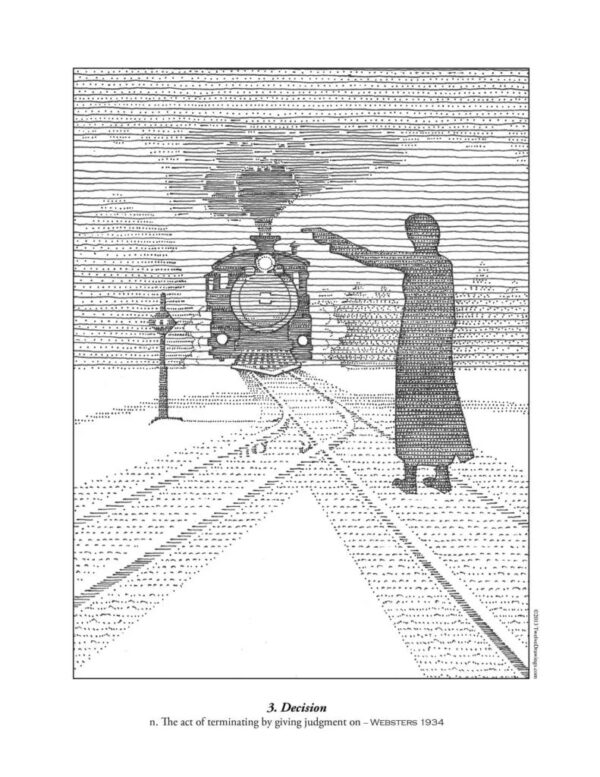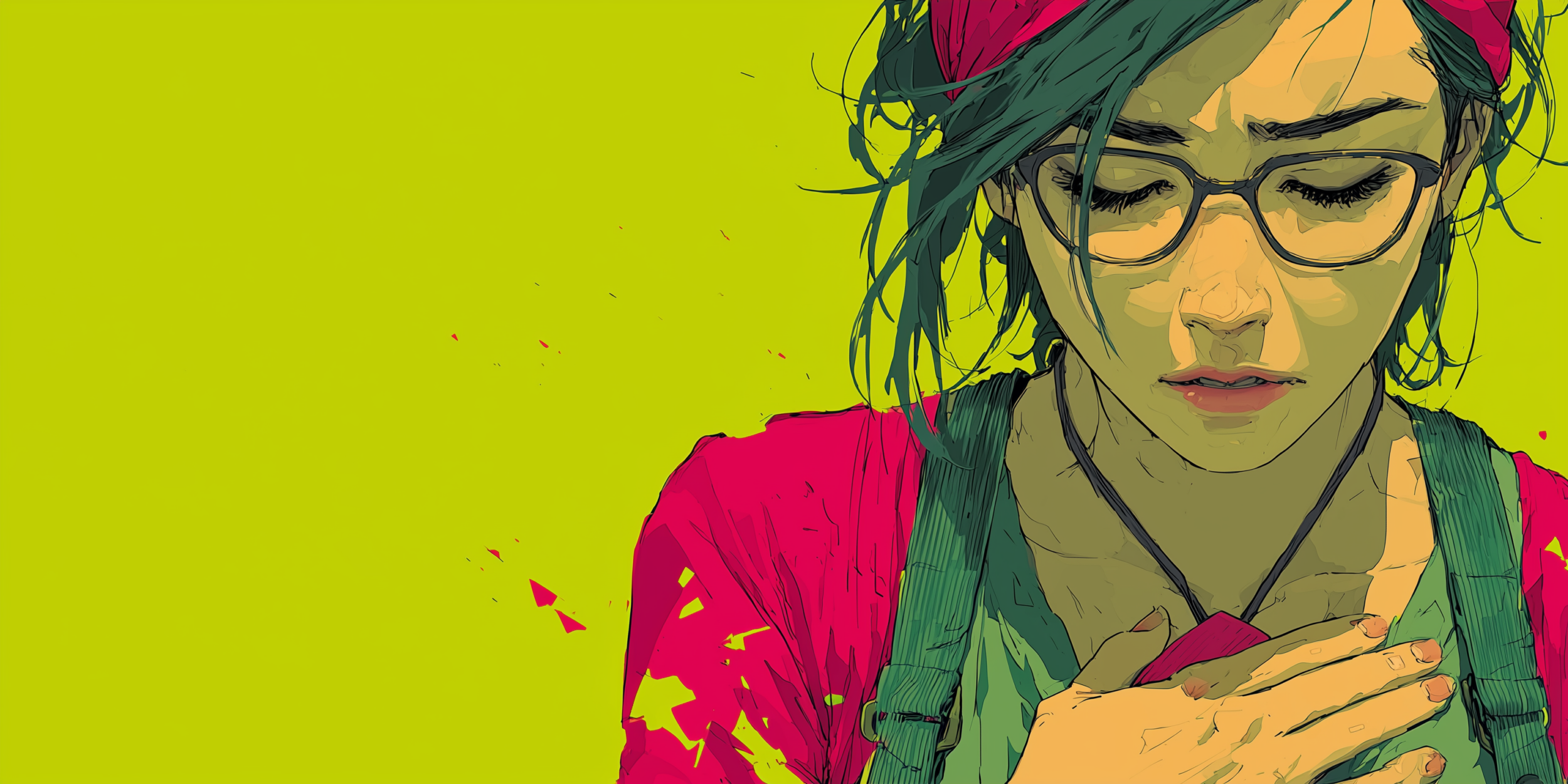I like to look up definitions of words that seem important to me in the Twelve Steps. I use a 1934 Webster’s Dictionary that was current when the Big Book was being written. My love of studying these old definitions somehow turned into a love of making drawings based on them.
One word that was very difficult to understand and illustrate was “Decision.” Step Three says: “We made a decision to turn our will and our lives over to the care of God as we understood him.” I have heard the word “decision” debated and examined in Twelve Step circles, so I looked it up: “Decision – n. The act of terminating by giving judgment on.”
That definition sounded fairly stiff, technical, and even legalistic. I tried to put it into my own words: “End the debate over what I should do.” Interesting idea, but if I reword a definition, I am changing the definition from its historical roots. I forced myself to return to what the 1934 dictionary said.
Before starting the Steps, I had been living the insanity that the White Book describes. Admitting my powerlessness (Step One) had been easy enough. Believing that no human power could solve my problem (Step Two) was not difficult. But now I was faced with something very concrete and difficult—a decision.
Decisions used to come easily for me. I made them quickly and often. If lust was not involved, the results were usually good. But lust was becoming an over-arching presence that increasingly claimed every aspect of my life. My decisions didn’t seem to mean much after a while. In reality, I was simply doing whatever my addiction decided.
Then I listened to Joe and Charlie’s Big Book Study. In it, they discuss the history, personalities, and words found in the book Alcoholics Anonymous. They discussed a “decision” as being a change in the mind that is meaningless unless followed at once by strenuous action. As an example, Charlie said he decided several times to visit relatives in California but he didn’t actually go there until he took all of the actions necessary to make the trip.
With this added perspective, I realized that a decision without action results in no change at all. Sure, Step Three sounded like an enormous change, but that decision would only produce real change if I then took Steps Four, Five, Six, and the rest.
I didn’t know it then, but this seemingly small change could lead me out of my insanity…. but only if I followed the decision with strenuous adherence to the Steps.
I wondered how I would put this simple but complex truth into a pen and ink drawing. Since childhood, I have been awed by trains, and knew that even powerful locomotives must follow whatever track they are on. When trains need to change their direction, they must drive over a special Y-shaped rail intersection called a “switch” which diverts them to a different track and a different destination.
I made some informal sketches of rail switches, but that wasn’t enough. I drew people throwing switches, but that showed the action rather than the mental step. Finally, I thought of a lone figure standing on the tracks and trying to mentally command a train to change tracks.
Here was a person who I could identify with. How often I stood in front of my onrushing addiction, telling myself I could make it go away simply by deciding I must stop. How often I would wake up the next day, wondering why my sincere and powerful decisions had failed so completely. As the drawing progressed, I made sure that the person looked tall and resolute and dignified and spiritual. I usually exhibited similar qualities right before the addiction flattened me.
From the perspective of my sobriety today, I realize that in such a situation, I have two options.
- I can use words and empty gestures to influence the train’s course (rely on decisions alone), or
- I can run like crazy to that railroad switch and pull it as hard as I can (follow my decision with strenuous action).
Before I got sober, my mind debated whether I really needed to change (get sober) or stay the way I was (addicted). Looking back, it doesn’t sound like a tough decision, but it was. Every time I decided to change, my addiction would knock my firm decision aside.
That dictionary offered me some hope, saying that a decision is “the act of terminating by giving judgment on.” (Funny, I hadn’t noticed the word “act” in that definition the first time I read it. Is that odd or is that God?) If my own judgment tells me it is time to terminate my internal debate, then I must act on that decision.
In the case of Step Three, I have to make a judgment: either change or stay the same. That decision must be followed by the actions of addiction or the actions of recovery. The history of recovery suggests three helpful actions: attend meetings regularly, work with a sponsor, and work the Steps.
For those currently working on Step Three, my suggestion is to run like crazy for the next right action. This might achieve better results than standing majestically on the tracks, hoping to avoid being hit by a train.

John I.






